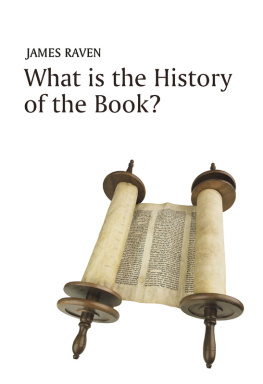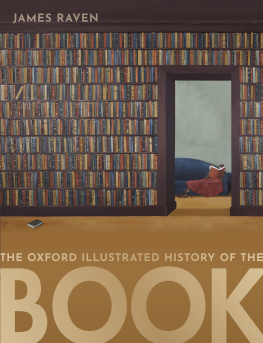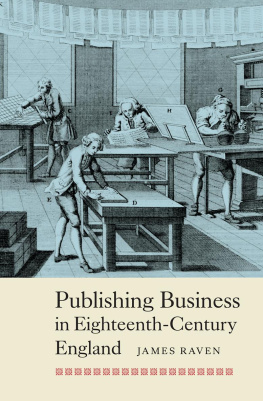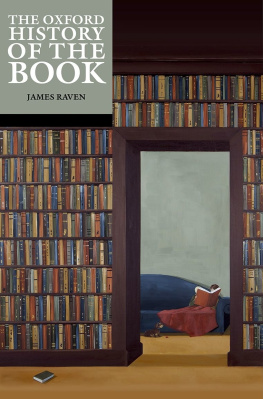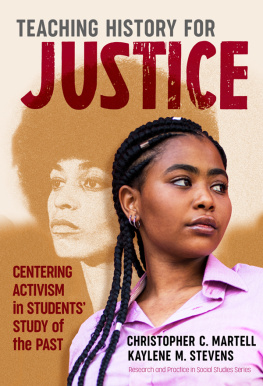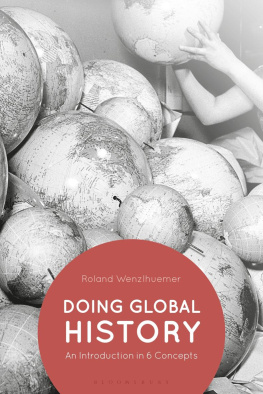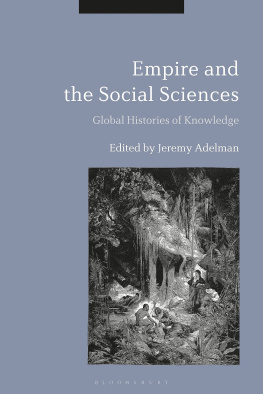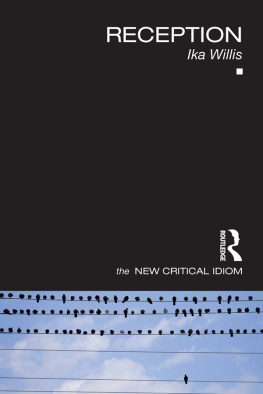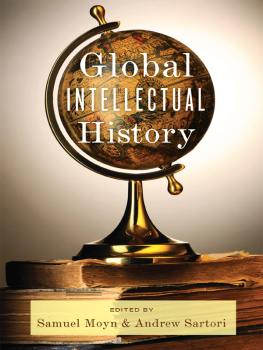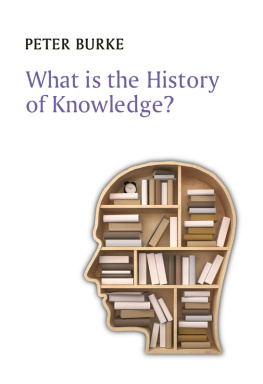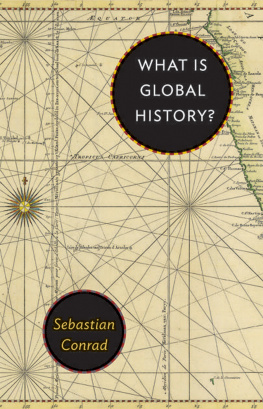
Series page
What is History? series
- John H. Arnold, What is Medieval History?
- Peter Burke, What is Cultural History? 2nd edition
- Peter Burke, What is the History of Knowledge?
- John C. Burnham, What is Medical History?
- Pamela Kyle Crossley, What is Global History?
- Pero Gaglo Dagbovie, What is African American History?
- Shane Ewen, What is Urban History?
- Christiane Harzig and Dirk Hoerder, with Donna Gabaccia, What is Migration History?
- J. Donald Hughes, What is Environmental History? 2nd edition
- Andrew Leach, What is Architectural History?
- Stephen Morillo with Michael F. Pavkovic, What is Military History? 3rd edition
- Sonya O. Rose, What is Gender History?
- Barbara H. Rosenwein and Riccardo Cristiani, What is the History of Emotions?
- Brenda E. Stevenson, What is Slavery?
- Jeffrey Weeks, What is Sexual History?
- Richard Whatmore, What is Intellectual History?
Copyright page
Copyright James Raven 2018
The right of James Raven to be identified as Author of this Work has been asserted in accordance with the UK Copyright, Designs and Patents Act 1988.
First published in 2018 by Polity Press
Polity Press
65 Bridge Street
Cambridge CB2 1UR, UK
Polity Press
101 Station Landing
Suite 300,
Medford, MA 02155
USA
All rights reserved. Except for the quotation of short passages for the purpose of criticism and review, no part of this publication may be reproduced, stored in a retrieval system or transmitted, in any form or by any means, electronic, mechanical, photocopying, recording or otherwise, without the prior permission of the publisher.
ISBN-13: 978-0-7456-4161-4
ISBN-13: 978-0-7456-4162-1 (pb)
A catalogue record for this book is available from the British Library.
Library of Congress Cataloging-in-Publication Data
Names: Raven, James, 1959- author.
Title: What is the history of the book? / James Raven.
Description: Cambridge, UK ; Malden, MA : Polity Press, 2017. | Series: What is history? | Includes bibliographical references and index.
Identifiers: LCCN 2017018037 (print) | LCCN 2017047009 (ebook) | ISBN 9781509523207 (Mobi) | ISBN 9781509523214 (Epub) | ISBN 9780745641614 (hardback) | ISBN 9780745641621 (pbk.)
Subjects: LCSH: BooksHistory. | PrintingHistory | BibliographyHistory. | Transmission of textsHistory. | Book industries and tradeHistory. | Books and readingHistory.
Classification: LCC Z4 (ebook) | LCC Z4 .R237 2017 (print) | DDC 200dc23
LC record available at https://lccn.loc.gov/2017018037
Typeset in 10.5 on 12 pt Sabon
by Toppan Best-set Premedia Limited
Printed and bound in the UK by Clays Ltd, St Ives PLC.
Illustration credits: 1: British Museum/Wikimedia Commons; 2: University of California Riverside/Flickr; 3: Wikimedia Commons; 4: University of Bologna/Wikimedia Commons; 5: Museum Georg Schfer/Wikimedia Commons.
The publisher has used its best endeavours to ensure that the URLs for external websites referred to in this book are correct and active at the time of going to press. However, the publisher has no responsibility for the websites and can make no guarantee that a site will remain live or that the content is or will remain appropriate.
Every effort has been made to trace all copyright holders, but if any have been inadvertently overlooked the publisher will be pleased to include any necessary credits in any subsequent reprint or edition.
For further information on Polity, visit our website:
politybooks.com
Illustrations and Tables
Illustrations
Cuneiform tablet found in Sippar, from around 600500 bce
An unfolded Chinese bamboo concertina book: an eighteenth-century ce copy of The Art of War by Sunzi (Sun Tzu) (c. 544496 bce )
Codex Argenteus, a sixth-century manuscript, originally containing Bishop Ulfilas' fourth-century translation of the Bible into the Gothic language
Codex Cospi, a pre-Columbian Mesoamerican pictorial manuscript believed to originate fromthe Puebla-Tlaxcala region
A Bibliophile Caring for his Extensive Collection by Carl Spitzweg, 1850
Tables
Printing, paper and allied museums
Centres for the history of the book
International lecture series in bibliography, and the history of the book
Earliest known printing by metal type cast in Europe and North America in selected towns and cities worldwide
Preface
This book offers a fresh and suggestive exploration of the fast-developing field of book history. It investigates the scope of the history of the book as understood by its practitioners worldwide and probes its theoretical and practical underpinnings. The following chapters chart the subject's distinctiveness, examining debates about its range, origins, methods and future direction. My aim is to test the boundaries of book history by exploring problematic examples of relevant historical investigation in bibliography, literature, communications and media studies. I am especially keen to suggest new directions by discussing periods and themes that are still underdeveloped and capable of further and different interpretation. Throughout, comparative examples, together with specific types of sources identified and explained, aim to illustrate the subject's development, strengths and weaknesses.
Given the enormous number of published contributions to this subject, the selection of cited individuals and examples is particularly invidious but also necessary in such a concise book. Notes are limited to the essential and specific. A bibliography offers broader references (including to authors mentioned in the text) as well as suggestions for further reading. These correspond where possible to the different sections of the book. References and recommendations, in line with the rubric of this series, are predominantly in English or translated into English. In deference to the global spirit of this volume, I adopt bce instead of bc . ce is used instead of ad but only where its omission might cause confusion.
I hope that students, teachers, researchers and general readers will benefit from an investigation that crosses disciplinary boundaries and intersects with literary, historical, communications, media, library and conservation studies. I have placed particular emphasis on book history's growing global ambition, contributing to debates about intellectual and popular culture, colonialism and the communication of ideas, the technologies, financing and economics of book production, and how study of reading practices opens up new horizons in social history and the history of knowledge. Robert Darnton, one of the pioneers of this enterprise, has written that the history of books can look less like a field than a tropical rain forest in which an explorer can hardly make his way across. Here goes.
Acknowledgements
Having used examples from around the world to explore different traditions in bibliography, palaeography, epigraphy and manuscript studies, I am hugely indebted to colleagues for their advice and criticism. The volume draws appreciatively upon the learning and expertise of dozens of fellow scholars and students, but, invidious as it is, I record particular thanks to Nicolas Barker, Isabelle Baudino, John Bender, Ann Blair, Cynthia Brokaw, Roger Chartier, Sophie Coulombeau, Robert Darnton, Margaret Ezell, Roger Gaskell, Alexandra Gillespie, Anthony Grafton, James N. Green, Germaine Greer, David D. Hall, George W. Houston, Leslie Howsam, Joseph McDermott, Jason McElligott, David McKitterick, Anne McLaren, Ian Maclean, David Pearson, Eleanor Robson, Leon Rocha, Daniel Roche, Graham Shaw, David Simpson, Clifford Siskin, Peter Stallybrass, Michael F. Suarez, Dominique Varry, Germaine Warkentin, William Warner, James Willoughby and Henry Woudhuysen. Many of these colleagues very generously offered extensive comment upon the text, identified errors and engaged in debate about particular controversies (and I owe a special debt to William Zachs for magnificently acerbic criticism and the suppression of the parenthetical). Earlier in my studies I was privileged to receive generous guidance from the greatly missed Giles Barber, Jeremy Black, Don McKenzie, Michael Treadwell and Michael Turner. Immense patience has been required from my editors at Polity and I am grateful for the support and encouragement of Andrea Drugan, Pascal Porcheron, Ellen MacDonald-Kramer and Ann Bone. Peter Burke first suggested that I write this volume and I continue to benefit enormously from his friendship and from the inspiration of his pioneering scholarship.
Next page
